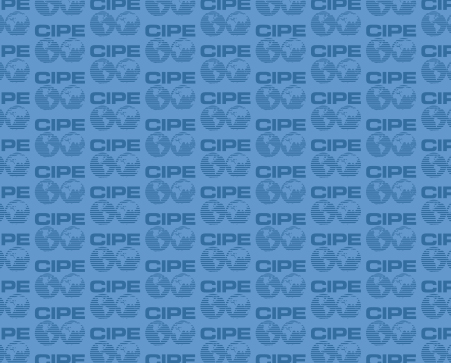
Sergio Daga is a CIPE-Atlas Corps Think Tank LINKS Fellow serving at the Heritage Foundation.
According to empirical studies, high rates of economic growth over the long-term (in per capita terms) result in better living standards for people in every country. The main force for high, long-term economic growth rate is productivity gains – finding better ways to efficiently use production factors such as natural resources, labor, physical and human capital.
Lora and Pagés explain that, compared to other regions in the world, the relatively lower growth of productivity is the main determinant of the poor economic growth rates in Latin American countries. They also argue that it has also prevented the region from closing income gaps and economic development levels with developed economies. Therefore, the achievement of higher productivity should be the epicenter of the current economic debate in Latin American countries.
How can we foster productivity? Productivity gains are usually associated with increases in technological progress of a country, but some argue that this is a complex problem that goes beyond that. In fact, depending on the country’s level of development, technological readiness could be a necessary condition but not a sufficient one.
For low-middle income countries, such as the majority of Latin American countries, productivity gains could be achieved by making progress towards what the World Economic Forum’s Global Competitiveness Report calls “the fundamental pillars for development.” One of the most important pillars is having a sound and fair institutional environment.
Institutions set the rules that shape incentives for businesses. Market-friendly institutions ensure fair competition for resources, and provide businesses with good ideas the opportunity to thrive and grow. Therefore, low productivity is often the result of state failures that distort incentives to innovate and also prevent the expansion of efficient firms while promoting survival and growth of inefficient firms. These failures are often more pronounced in weak-institutional economies, such as in Bolivia (which ranked 119th out of 144 economies in terms of institutional strength in the World Economic Forum (WEF)’s latest Global Competitiveness Report).
Concerned about this problem, the think tank I work for in Bolivia, POPULI (Políticas Públicas para la Libertad), has presented this issue in various platforms. We organized seminars with high-level policymakers, published several policy reports, and provided courses about this topic for university students to spread awareness.
Based on discussions from these activities, POPULI has come up with one essential recommendation: that all the political parties in Bolivia’s Congress, as well as the executive branch, should not interfere with the work executed by the judiciary branch. The justice system’s autonomy from political interference is a precondition to preserve rule of law and protect property rights in any country. This will help instill sense of security and strengthen in the legal system, which are important to help attract more foreign investment into the country, and also encourage domestic investment to help jobs and foster innovation in enterprises. This is especially true for Bolivia, where both foreign and domestic investment into the country is low because of the government’s inability to protect investors – in the above mentioned WEF report, Bolivia is ranked 110th country out of 144 in terms of investor protection.
Enhanced productivity and efficiency are the main determinants of high rates of long-term economic growth. The institutional environment is the main force behind factor driving productivity gains, which is why POPULI works to raise public awareness about this issue. If Bolivia is to become a developed nation, we must start today to make the institutional reforms needed to give all Bolivians the opportunity to choose a better life.
CIPE Atlas Corps Think Tank LINKS Fellowship brings talented young professionals with strong research backgrounds to shadow researchers and experts at leading U.S. think tanks for six month. Sergio Daga is part of the inaugural class, serving at the Heritage Foundation as Visiting Senior Policy Analyst for the Index of Economic Freedom in Latin America.
Published Date: February 20, 2013